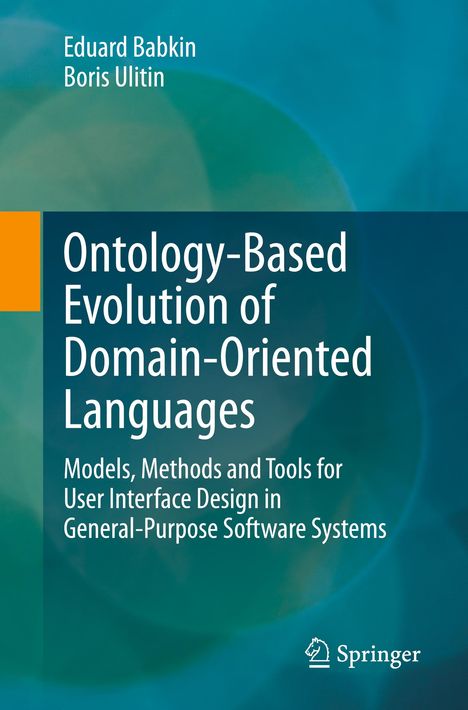Boris Ulitin: Ontology-Based Evolution of Domain-Oriented Languages, Kartoniert / Broschiert
Ontology-Based Evolution of Domain-Oriented Languages
- Models, Methods and Tools for User Interface Design in General-Purpose Software Systems
(soweit verfügbar beim Lieferanten)
- Verlag:
- Springer Nature Switzerland, 11/2023
- Einband:
- Kartoniert / Broschiert, Paperback
- Sprache:
- Englisch
- ISBN-13:
- 9783031422010
- Artikelnummer:
- 11697760
- Umfang:
- 160 Seiten
- Nummer der Auflage:
- 23001
- Ausgabe:
- 1st edition 2024
- Gewicht:
- 254 g
- Maße:
- 235 x 155 mm
- Stärke:
- 9 mm
- Erscheinungstermin:
- 25.11.2023
- Hinweis
-
Achtung: Artikel ist nicht in deutscher Sprache!
Klappentext
This book focuses on the study of ontology-based models and methods used for the implementation of the evolution of external domain-specific languages (DSL), which are mainly intended for modelling the structure of human-machine interfaces. The primary goal of the approach is to increase the efficiency of support processes during the life cycle of general-purpose software systems.
The book is structured in seven chapters. Chapter 1 presents the objectives and significance of the research, as well as a summary of the contents of the work. Chapter 2 analyses the existing classical DSL design and implementation methodology for modelling human-machine interfaces in the context of the lifecycle of general-purpose software systems. Next, chapter 3 is devoted to an analysis of existing methods and formalisms used in describing the structure of a DSL for modelling human-machine interfaces of software systems. Subsequently, chapter 4 provides a detailed description of the proposed new projection-based approach for developing such DSLs. Chapter 5 then describes the software implementation of the human-machine interface evolution based on an example of an external DSL in two domains. Eventually, chapter 6 analyses the application of the proposed projection approach for more complex systems, namely, decision support systems based on heterogeneous information of decision makers. The concluding chapter 7 summarizes the main results of the research and suggests further development paths and practical applications.
The book is written for researchers in model-driven software development in general and in domain-specific language engineering in particular.



